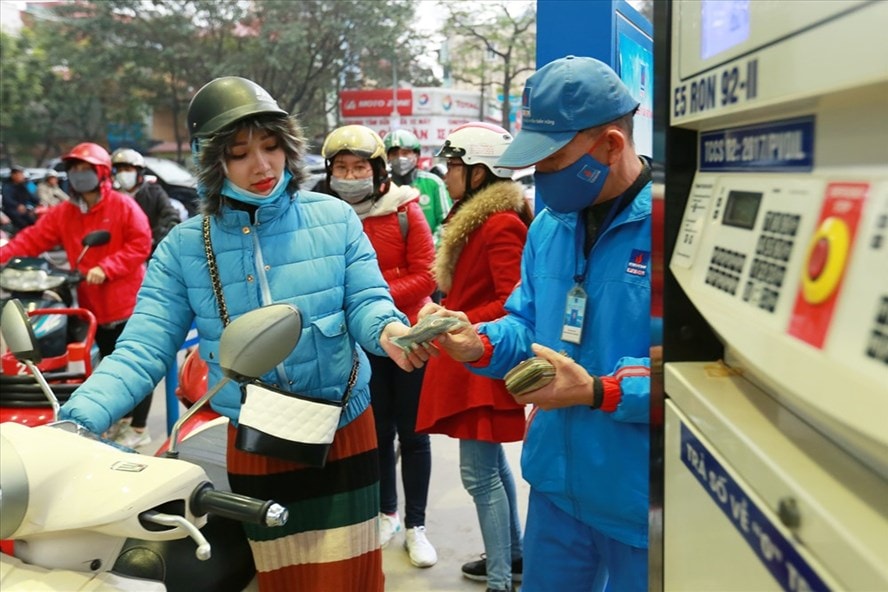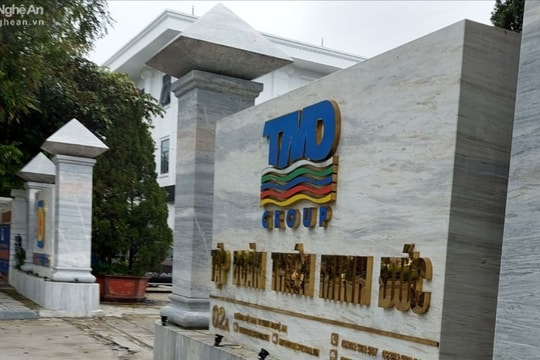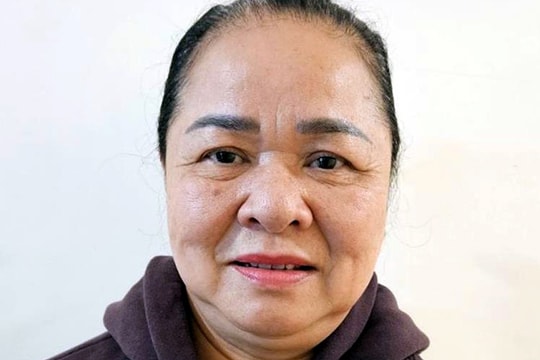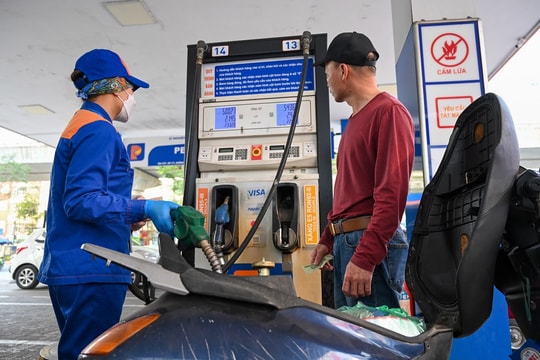Gasoline prices: 'Unstable' because of the stabilization fund?
The use of the fuel price stabilization fund has been met with many conflicting opinions from experts in recent years. Even a report by the State Audit last week frankly pointed out many shortcomings of this fund.
Discharging the stabilization fund according to "reason"
The increase in the price of RON 95 has made the selling price of RON95 gasoline much higher than that of E5 RON92 bio-fuel by 1,850 - 2,050 VND/liter. The main reason is that the price of E5 RON92 gasoline is being spent using the Price Stabilization Fund (BOG) while the price of RON95 gasoline is regulated by the market, does not use BOG and is adjusted to increase in price according to world prices.
 |
| People buy E5 gasoline at a gas station on Hoang Quoc Viet Street (Hanoi). |
This raises the suspicion that the regulatory agency wants to create such a gap so that E5 gasoline can be consumed more strongly. At the same time, the fact that RON95 is not used to use the Price Stabilization Fund and the base price is not announced like E5 or RON92 before makes many people afraid of the transparency in price management.
Mr. Nguyen Tien Thoa - General Secretary of the Valuation Council - said: "Regarding the use of the price stabilization fund for petroleum products, there is a circular regulating it, but here the management agency may want to increase the fund release for E5 to encourage its use. But that is not okay because gasoline types that fluctuate must use the fund to avoid too much fluctuation. Discharging the fund for this product but not for the other, causing a difference of up to 2,000 VND/liter, is not advisable."
In fact, the use of the petroleum price stabilization fund has faced many conflicting opinions among experts in recent years. Even a report by the State Audit last week frankly pointed out many shortcomings of this fund.
Specifically, in the conclusion just announced last weekend, the State Audit affirmed that the establishment, management and use of the BOG Fund according to Decree 83 is necessary. Because this fund plays a role as one of the tools for the State to regulate domestic gasoline prices in case of fluctuations in world gasoline prices.
In the 47 periods of gasoline price management in the period of 2015 - 2016 announced by the Ministry of Industry and Trade, the BOG fund deduction level in the base price is as follows: There are 3 periods with the fund deduction level higher than 300 VND/liter, 1 period with the BOG fund deduction level lower than 300 VND/liter, in the remaining 43 periods with the BOG fund deduction level is stable at 300 VND/liter.
However, the State Audit believes that the allocation of the BOG fund still has many shortcomings. Specifically, when the base price increases compared to the previous period, the price management still implements the allocation and disbursement of the BOG fund. Thus, with the current price management method, the price of gasoline will still increase after implementing the price management and in fact, many key enterprises still have a large amount of BOG fund remaining after adjusting the price.
To overcome this situation, the State Audit has recommended criticizing the BOG fund when prices decrease so that prices remain stable (price stabilization) and create resources for the fund, when prices increase, no deductions will be made (so as not to increase prices - achieving the goal of price stabilization) and the stabilization fund will be used to compensate, when there is a shortage of funds, then prices will increase.
"However, it is also necessary to balance the level of fund use so that it is not too high, and the spending period should not be too long, because this will lead to domestic prices deviating from world prices, quickly depleting the fund and then forcing a price increase" - the State Audit stated.
"Should have been removed long ago"
Dr. Nguyen Minh Phong - an expert who has repeatedly proposed to completely abolish the price stabilization fund - said: "To say it is unstable and inadequate is an understatement. Firstly, the gasoline price stabilization fund is really like no other. In the past, we had a stabilization fund for the whole country, using the profits of one commodity to compensate for other commodities, but this gasoline price stabilization fund is like no other."
Speaking more about the shortcomings of the gasoline price stabilization fund, Mr. Phong said: "This stabilization fund has its source of money from consumers, taking money from consumers to pay consumers but through a series of complicated mechanisms, it is very easy to lose because it does not form a centralized fund but only records and reports, very difficult to control."
“The fuel price stabilization fund is not fair in that, you directed to release this amount but that is the manager's rationale, but the 11 key leaders are different, cannot be synchronized, please say it is very tiring. In the end, as I said, this is still the people's money and paying back and forth like that, the people do not benefit. Even the market does not benefit because the release and deduction of the fund distorts the fuel price, not in line with the market price anymore. This fund should have been abolished a long time ago" - Mr. Phong emphasized.
Previously, whether to continue maintaining the petroleum price stabilization fund or not was a controversial topic. At a Government press conference in 2017, Deputy Minister of Industry and Trade Do Thang Hai affirmed that it was entirely possible to abolish the Petroleum Price Stabilization Fund but would need to choose the right time to decide.
Previously, Associate Professor Dr. Ngo Tri Long, an economic expert, said that in business, every enterprise needs to have reserves for bad situations. However, the source of reserves is very important. The current problem in setting up the Petroleum Price Stabilization Fund is that the fund is currently only collected from the people, while the main petroleum enterprises do not have to contribute a single dong even though they enjoy a fixed profit margin of 300 VND/liter (regardless of how domestic petroleum prices fluctuate).
According to Dr. Le Dang Doanh, the Petroleum Price Stabilization Fund is said to be established to stabilize prices for the people, but in reality, the fund's management does not have any people's representatives. People do not know how the Petroleum Price Stabilization Fund is currently managed, and how transparent it is. Therefore, Decree 83 needs to be supplemented and completed to suit the reality.
Some other experts also recommend caution in management; otherwise, businesses may “take advantage” of the BOG Fund. Ideally, there should be the involvement of inspection and control agencies.




